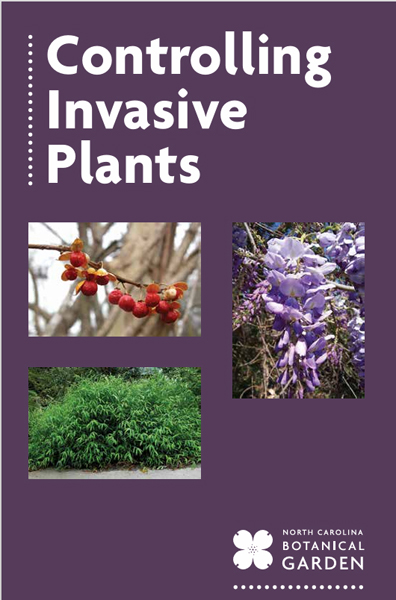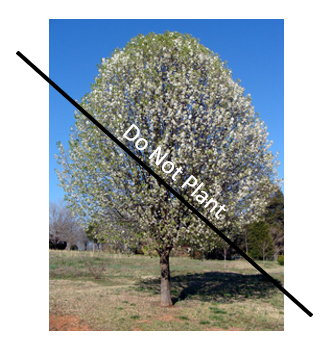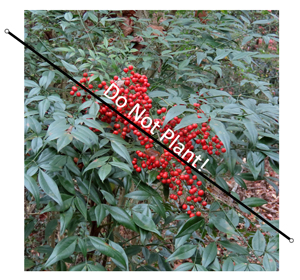What’s the Problem with Invasive Plants?
Many people don’t realize that commonly seen plants like Bradford Pear trees, Chinese Privet, English ivy, Nandina (and many others!) are non-native plants that are invasive. They are in our neighborhoods, plant nurseries and landscapes everywhere. We have imported them based largely on their value as ornamental lawn and garden plants, not based on any ecological services they provide. Many of these imported non-native plants have escaped cultivation, becoming invasive by displacing the plants native to local ecosystems. That is why they are such a serious threat to all our ecosystems in Piedmont North Carolina, and the native wildlife that depends upon them!
The list in our brochure, Forsyth Audubon Native Plants for Birds, presents the invasive species we see most often on our certification site visits.
We ask that property owners remove or control existing invasives considered Severe or Significant Threats by the North Carolina Native Plant Society to achieve Bird Friendly Habitat certification. To be certified these invasive plants can not cover more than 15% of the property’s planted area, with a homeowner’s plan to remove or control the invasives.
Are All Non-Native Plants Invasive?
No! Some non-native plants stay within the confines of our gardens and do not displace native plants in our ecosystems. They can be used as decorative and ornamental species, but they do not offer as much value (ecological services) for our wildlife for many reasons. Importantly, they do not host the native insects which are an essential part of an intact and bird-friendly ecosystem.
The North Carolina Botanical Garden has written a very helpful booklet,
“Controlling Invasive Plants,” which Forsyth Audubon recommends.
Other Invasive Plant Lists and Resources
- North Carolina Native Plant Society: Invasive plants listed by threat level
- NC Plant Council: Shun List
- NC State Extension Service: Invasive species
- Other sources for invasive plant identification: Invasive Plant Atlas of the United States

 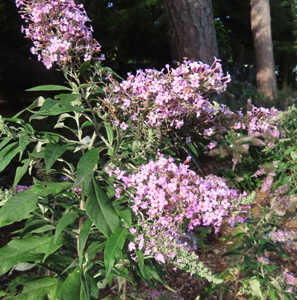 Butterfly Bush |  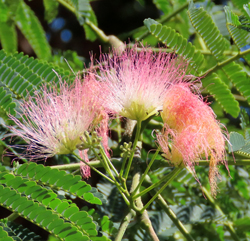 Mimosa |  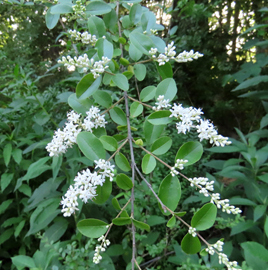 Chinese Privet |  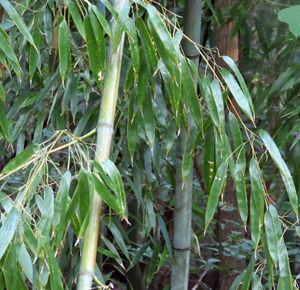 Bamboo |  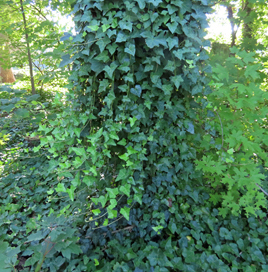 English Ivy |  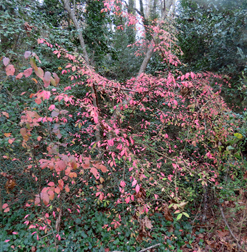 Burning Bushy |  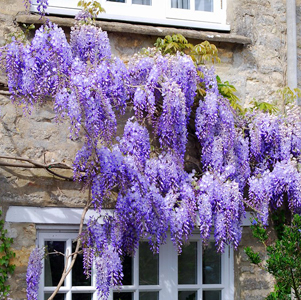 Wisteria Photo by dachala |  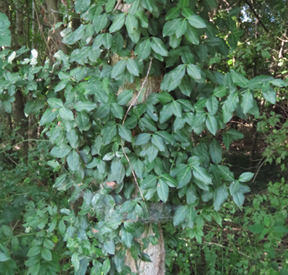 Winter Creeper |
